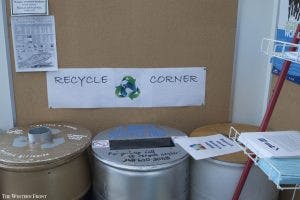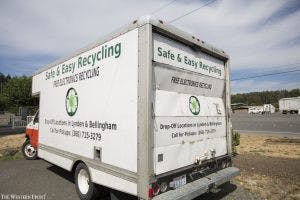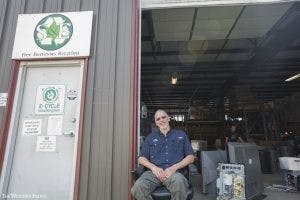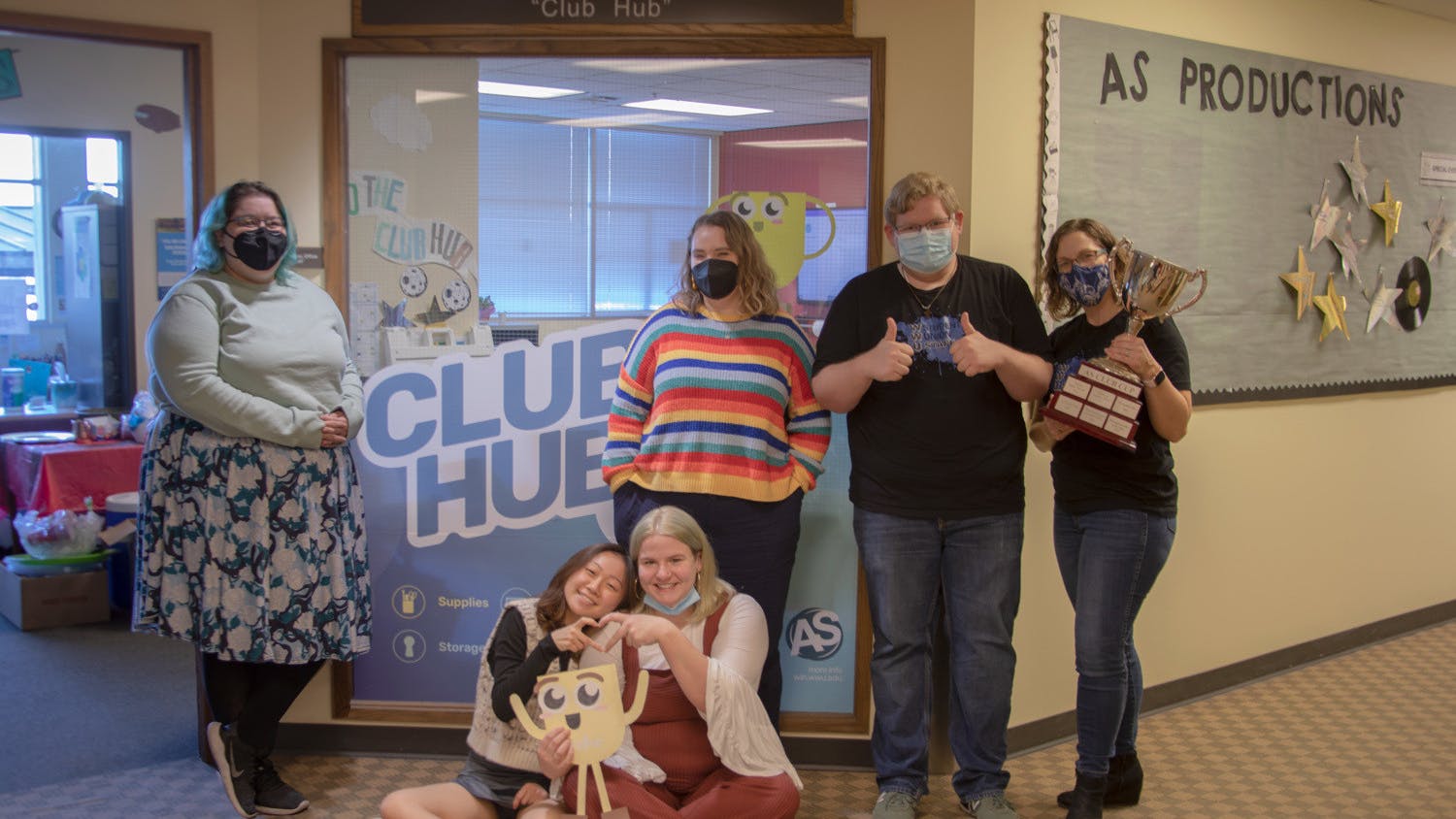E-waste, the largest growing form of waste in America, is any electronic device that is discarded by its user. This could range from a broken pair of headphones or an old phone charger to a TV or a microwave.
Only 12.5 percent of old electronics are recycled — 20 to 50 million metric tons end up in landfills worldwide. Many people don’t realize the environmental impact of throwing these items in the trash.
After two years of research and planning, the first official draft of the Sustainability Action Plan was submitted Friday, July 21, to Western President Sabah Randhawa in the hopes of having an official plan agreed upon by the administration before the start of fall quarter.
The plan consists of 10 chapters including transportation, student life, housing, dining, grounds maintenance and waste. The waste chapter of the Sustainability Action Plan touches on e-waste.
However, the options for disposing e-waste on campus are limited. The only place to recycle electronics on campus is a bin tucked away in the Western Associated Students Bookstore.

According to Western’s Electronic Waste policy, many electronic items, including computer components and accessories, contain toxic materials such as lead, cadmium and mercury that can harm the earth when tossed inthe garbage. The policy states: “Broken or obsolete items cannot be thrown into the trash or the toxic materials can leak out and contaminate the surrounding area, eventually making their way into our air, food, or water.”
It is through reusing and recycling electronics that these toxins stay out of our landfills, protecting not only our own health, but the environment as well.
“We’re an electronic society. Everybody has a computer, they all die. That’s the nature of electronics,” said Paul Zemler, the manager of Safe & Easy Recycling, an e-waste disposal company in Bellingham.
Despite technological advances in recent years, many are unaware of how to dispose of their electronics, or even what constitutes e-waste.
Senior geography major Christian Berres said he was unaware of the correct way to dispose of e-waste and didn’t know where to take his waste in Bellingham, so he threw it in the trash.
“I usually only throw stuff away once it’s broken. Otherwise, I try to pass it on if I can,” Berres said.

In a society that constantly replaces the oldwith the new, it’s no wonder so much e-waste is being produced. Peter Miterko, a graduate student in anthropology, agreed with Zemler.
“In this hyperconsumption day and age, when people are exchanging softwares [that are] in this year and out the next, I think it’s super critical for a university that drives that kind of innovation to have resources for the proper disposal of [e-waste],” Miterko said.
Western’s Zero Waste coordinator Gwen Larned said the Sustainability Action Plan was written by Western faculty and included student input.
“I know one of the big goals was reducing how much waste we’re producing,” Larned said. “We always recycle electronics owned by Western, and we always try to refurbish them first.”
Dave Keeney, a safety officer for Western’s Environmental Health & Safety program, discussed the university’s policy on reusing and recycling its e-waste.
“When an item is no longer needed by a campus entity, it is collected and evaluated for reuse as part of the University surplus program. If possible, the item is reused elsewhere on campus.”
Dave Keeny, Western Environmental Health & Safety program officer
“When an item is no longer needed by a campus entity, it is collected and evaluated for reuse as part of the University surplus program. If possible, the item is reused elsewhere on campus,” Keeney said in an email.
Items that are beyond repair or outdated are sent to a recycling facility in California, where they are separated into parts that can be reused.
But for students wishing to recycle their old technology, campus doesn’t have many options. Although there is one e-waste bin located at the entrance of the bookstore, recycling large items requires going off campus.
E-cycle Washington, a statewide program that allows residents and small businesses to recycle some unwanted electronics for free, is supported by several businesses in Whatcom County.

Safe & Easy Recycling is one recycling option and has been serving the Bellingham area for the past nine years. Its main facility, located on Hannegan Road, Safe & Easy collects old technology and recycles it while selling refurbished electronics in store.
As a collection site, Safe & Easy transports e-waste to a processing plant in Mukilteo, which then extracts valuable materials and sells them to manufacturers, Zemler said.
Susanna Hamilton, Western’s Sustainability Action Plan coordinator, encourages students who are passionate about the management of e-waste to reach out to the university’s Office of Sustainability and Zero Waste program because they are always looking for new ways to inform the student body on the issue.





